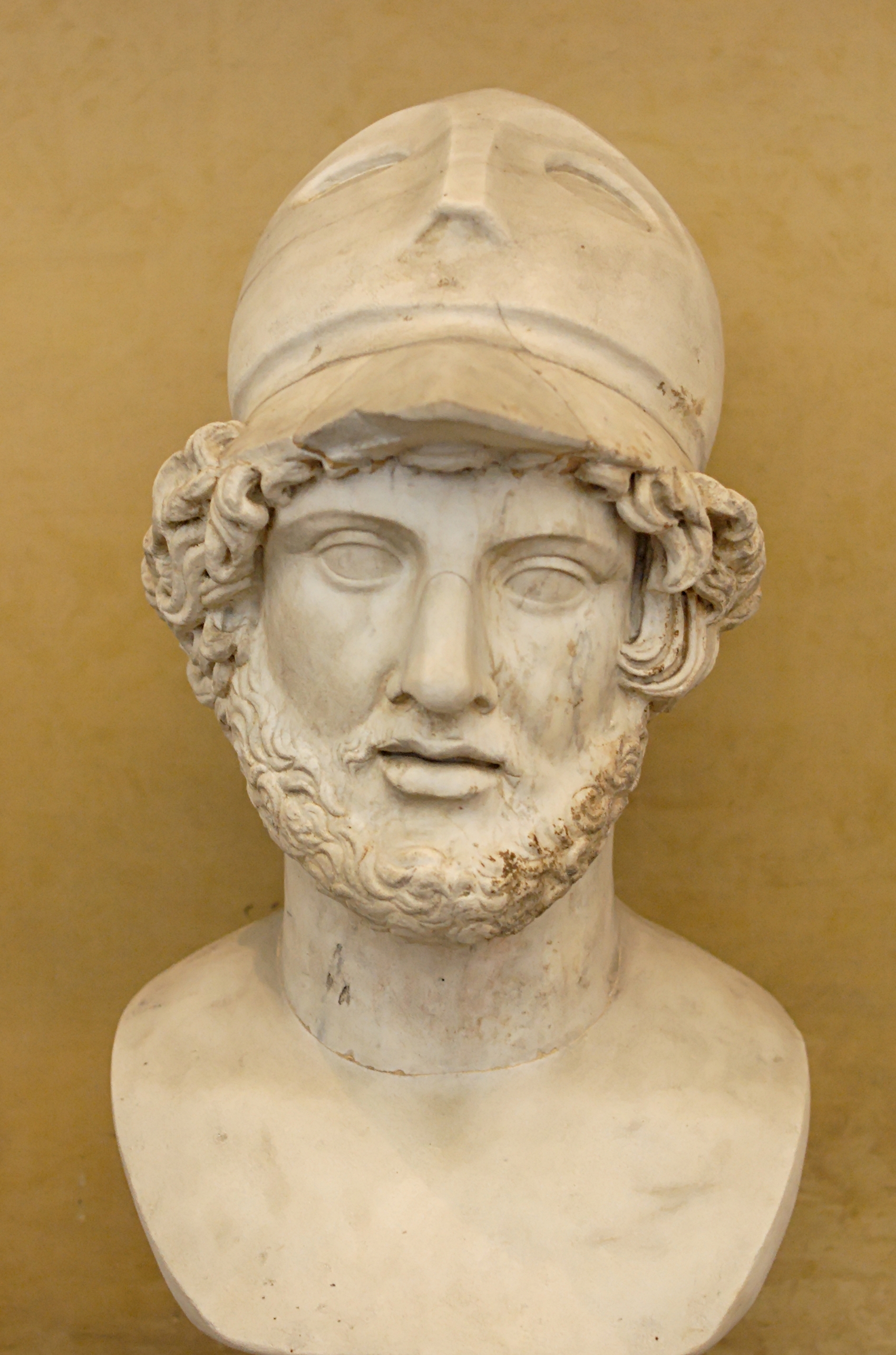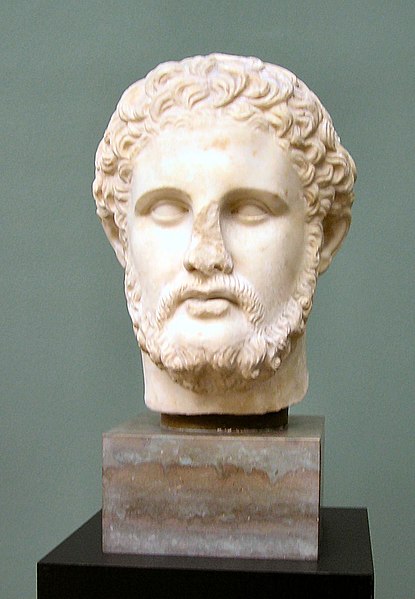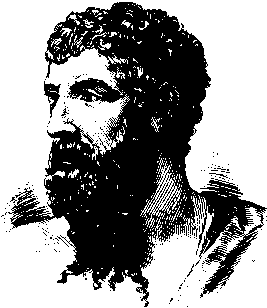Focus Question:
What were the causes, course, and consequences of the Peloponnesian Wars
between Athens and Sparta?
Map of the nations during the start of the Peloponnesian War around 431 BC

Topics on page
Relationships between Athens and Sparta
Origins of the War
Course of the War
Consequences of the War
Athenian and Spartan Women During and After the War
Lysistrata by Aristophanes
Relationships Between Athens and Sparta
The Peloponnesian Wars were a series of military conflicts in Ancient Greece between Sparta and Athens between 431-404 BC.
- Sparta and Athens were the two major city-states (independent cities) in Ancient Greece.
- Approximately 40 years prior to conflict arising between the two city-states, they were united to fight Persian imperialism.
- In 479 BC, Sparta and Athens worked together to successfully defend their land against the Persian attempt to conquer Greece. However, after the joint defeat of the Persians they began to quarrel among themselves.
 Lesson plan from PBS focusing on an Athens/Sparta comparison.
Lesson plan from PBS focusing on an Athens/Sparta comparison.
Origins of War: Rise of Athens
Bust of Pericles

After their conflict with the Persians, Athens developed into the most powerful city-state in Greece.
- Athens was the center of Greek culture and commerce under the leadership of Pericles, in what has been termed the Age of Pericles.
 Pericles' Funeral Oration in Thucydides' History of the Peloponnesian War described why Athens was great.
Pericles' Funeral Oration in Thucydides' History of the Peloponnesian War described why Athens was great.
Click here to read Plutarch's full biography on Pericles.
- Plutarch was a Roman historian, biographer, and philosopher who provides some of the most vivid character portraits available to modern readers regarding the great rulers and thinkers of Ancient Greece as well as Ancient Rome.
Athens created an Empire in two ways.
- Athens took on the responsibility of defending Greece by creating the Delian League, a military body whose purpose was to ensure security in the region.
- The League's treasury was moved to Athens, as Athens was the leading voice and most powerful member of the League. Athens, with its newfound power and position as head of the League, began to treat its fellow members as ruled subjects rather than partners in an alliance. They also started a number of wars to force members who wanted to leave the League to rejoin it.
- In addition, Athens began practicing democracy.
- The majority of male citizens played a role in determining policy through participating in the Assembly (Athens political body).
- Democracy created a climate in which both the arts and academics flourished. Athens became the most admired city-state in the land.
- Athens signed a treaty of mutual protection with Corcyra, a city-state with a powerful navy.
- Sparta took this treaty as a threat. Sparta cancelled the peace treaty with Athens a year after the treaty of mutual protection was signed.
- Sparta was concerned by Athens’ growing power in the region – they were scared Athens would eventually use this power to try and control them through imperial pursuits. This motivated Sparta to begin to resist Athenian imperial advances, and begin a military conflict against Athens.

Click here for a video detailing the rise of Athenian power.
Course of the War (431 - 404 B.C.)

The Peloponnesian War gained its name from the Peloponnese peninsula in southern Greece. This was home to multiple Greek city-states including Sparta, Argos, Corinth and Messene.
The first Peloponnesian War lasted for 10 years. It began when Sparta repeatedly attacked Attica (land controlled by Athens) and attempted to ruin the food supply by destroying crops. The Athenians, acknowledging the Spartan's superior armies, remained in Athens behind heavily fortified walls, stretching from Athens proper to its seaport of Piraeus. The Athenians left the brunt of the fighting to their powerful navy, which defended the city and responded to land attacks by Sparta by raiding the shorelines of the Peloponnese.
In 429 B.C., a mere two years into the war, an epidemic broke out in Athens, killing one-third of the population. This included the Athens' unquestioned leader and general of their armies, Pericles.
In 421 B.C., a peace treaty was signed between Athens and Sparta. Known as the Peace of Nicias, the treaty was meant to last for fifty years; however, after only three years of peace, Athens began raiding the coast of Sicily in an attempt to further its imperialist desires. By doing so, Athens violated the Treaty of Nicias. Spartan retaliation swiftly followed, and so began the Second Peloponnesian War.
In 404 BC, Sparta successfully destroyed the Athenian navy at the Battle of Aegospotami, opening the door for a final victory against Athens with a siege of the city. Unable to supply the city without its navy, Athens surrounded to Sparta. The surrender of Athens marked the end of the Peloponnesian wars, as its allies quickly followed suit.
 |
| Battles of the Peloponnesian War |
 Multimedia Resources
Multimedia Resources
Click here to learn more from The History Channel with videos and text.
Link Here for a short video clip on the background, major turning points, and military details of The Peloponnesian Wars.
An interactive map of the Peloponnesian War.
Click here for a biographical page on Alcibiades, an influential Athenian politician who switched his allegiance from Athens to Sparta, and then from Sparta to Persia during the War.
Learn about the Ancient Greek Hoplite Soldier
You've Heard of the 300 Spartans, but what about the Sacred Band of Thebes?
Consequences
Phillip II of Macedoni

The Peloponnesian Wars changed Greek society; the war resulted in a great deal of destruction and widespread poverty.
- The great influx of citizens in the cities seeking refugee from attacks created a great strain on Athens. With so many people, there was a lack of food, water and shelter to go around for all.
- More than half the population in Athens had died of illness by the third year of fighting.
- Athens lost its status as the most powerful Greek city-state.
- Neither Athens, Sparta, nor Thebes could claim full control of Greece Proper, resulting in the weakening of the city-state system.
- The wars and weakening of the city-state system set the stage for the conquest of Greece by the Philip II, King of the Macedonians and father of Alexander the Great. Northern neighbors to the Greeks with imperialist visions of their own, the Macedonians took advantage of a weakened Greece to solidify its power in Europe and begin a long history of conquest in 338 B.C..
Hellenica by Xenophon [Begins, without preface, exactly where Thucydides ends (411 BCE)]
Athenian and Spartan Women After the War
Athenian Women After The Peloponnesian War
- Women who had previously been considered middle class and worked in the home making necessary items like textiles, etc. were now faced with an economic reality of not having a male partner or family member to support them financially (as they had died in the war).
- This caused an increase in women taking jobs outside of the home, but these jobs were traditionally low paying and gender specific. Even though this brought more women into the public life, they were not granted any additional rights or included in politics.
Click here for a link on life for Spartan women, and click here to read about gender in Sparta.
- Unlike their Athenian counterparts, Spartan women enjoyed numerous luxuries and freedoms.
- Women were to be educated in arts, music, war, and philosophy. They were also expected to pass a physical examination at the age of 18 to gain full citizenship.
- Women were equally as immersed in the Spartan war-culture as the men; the knowledge of fighting was passed down to women through generations.
- Sparta had much more equal and similar gender roles for both their male and female citizens than many other nations at the time.
Lysistrata by Aristophanes

Lysistrata, written by Aristophanes, war an anti-war Greek comedic play.
- The plot consists of the women of the Peloponnese, in an attempt to end the ongoing Peloponnesian Wars, to deny their husbands of sexual privileges until the war ends and peace is negotiated between the two sides.
- Athenian women also seize the Acropolis, which held the state treasury of Athens at the time.
- Without it, Athens could no longer afford to continue its war.
-
- The comedy was immediately popular, as the satirical play about the Peloponnesian Wars was a welcomed comedic spin on an otherwise dark period in Greek history.
Click here for more information on what Lysistrata tells us about women in warfare.
Text of the Play
Video Summary of the Play
This video is a parody of Wife Swap done by BBC's Horrible Histories, which compares the familial roles of men and women in Athens and Sparta. Students may find it engaging and highlights in a humorous way how the two types of families differ.
.png) Which of these internal political factors contributed to the downfall of ancient Athens during the Peloponnesian War?
Which of these internal political factors contributed to the downfall of ancient Athens during the Peloponnesian War?
a.) The former king of the city led an armed rebellion against the city’s democratic leadership.
b.) Apathy amongst the voting population led to a gradual decline in voter turnout during elections.
c.) Demagogues misled voters and sometimes caused the Athenian Assembly to make poor decisions that ultimately undermined the city’s interests.
d.) Slaves and women often voted against the military’s proposals, making the war effort less efficient.
Option A is wrong because the city’s monarchy had ceased to exist centuries before. Option B is also incorrect, because apathy amongst the voting population was also not a severe issue as far as we know; the Athenian citizenry was heavily involved in the political process. Option D is incorrect because slaves and women were excluded from the Athenian Assembly and disenfranchised. As a result, option C is the only correct answer, as demonstrated by incidents such as the Trial of the Generals or the rise of popular but ineffective leaders such as Cleon.
Submitted by Jeremy Spevack (March 2024)
Additional Resources:
BBC - Schools - Ancient Greece
Ancient Greece
Duiker, W., & Spielvogel J. (2005). The Essential World History to 1400. Belmont: Wadsworth Group / Thomson Learning.
Duiker, Pages 76 - 77.
Duiker, Pages 76 – 77.
Duiker, Pages 76 – 77.
Comments (0)
You don't have permission to comment on this page.